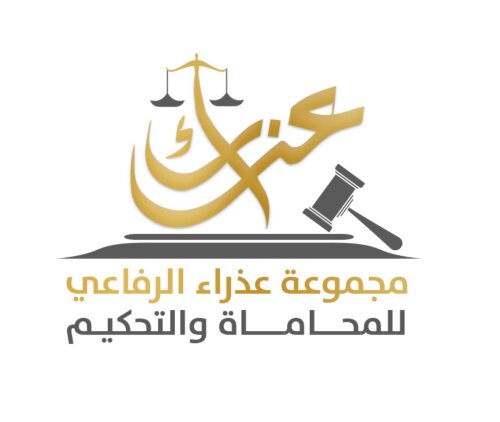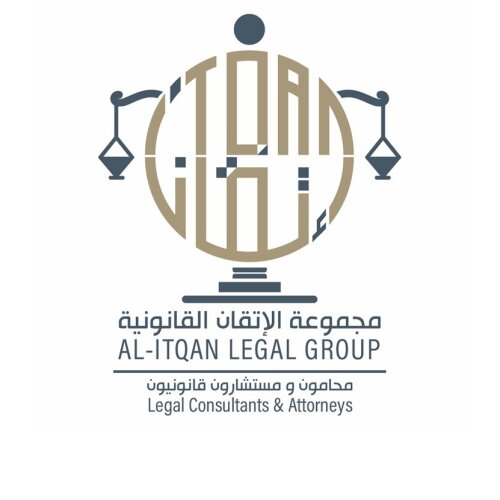Best Restructuring & Insolvency Lawyers in Kuwait City
Share your needs with us, get contacted by law firms.
Free. Takes 2 min.
List of the best lawyers in Kuwait City, Kuwait
About Restructuring & Insolvency Law in Kuwait City, Kuwait
Restructuring and insolvency law in Kuwait City, Kuwait, deals with legal processes that help financially distressed businesses and individuals reorganize their debts or, in some cases, undergo liquidation. The banking, trade, and investment sectors in Kuwait are integral to the economy, making restructuring and insolvency issues particularly relevant. The Kuwaiti legal framework provides mechanisms for both debtors and creditors to find efficient solutions, whether through negotiated restructuring agreements, formal rehabilitation procedures, or lawful liquidation under the supervision of the courts.
Why You May Need a Lawyer
There are several situations in which you might require legal assistance related to restructuring and insolvency matters in Kuwait City. Common scenarios include:
- Your business is unable to meet its debt obligations on time and needs protection from creditors.
- You are a creditor seeking to recover outstanding debts in an insolvency situation.
- You wish to explore restructuring options to avoid bankruptcy and continue operating.
- You are unsure how to comply with formal requirements for bankruptcy, rehabilitation, or liquidation under Kuwaiti law.
- You want to negotiate with creditors in a legal and structured manner.
- There is a risk of personal liability as a company director or guarantor.
A qualified lawyer can help clarify your options, ensure compliance with complex laws, protect your interests, and facilitate efficient solutions in high-pressure circumstances.
Local Laws Overview
Kuwait’s restructuring and insolvency laws have seen significant reforms, with the issuance of Law No. 71 of 2020 Regarding Bankruptcy, which replaced older provisions of the Commercial Code. Key aspects of local law include:
- Debtor Protection: The law introduces protective measures for debtors undergoing financial difficulty, including stays against creditor actions in certain procedures.
- Rehabilitation: Eligible debtors can seek rehabilitation, allowing businesses to restructure debts and reorganize operations under court supervision, preserving value and jobs.
- Bankruptcy Proceedings: If rescue is not feasible, formal bankruptcy proceedings can lead to asset liquidation with equitable distribution to creditors.
- Out of Court Settlements: The law encourages settlements and consensual restructuring between debtors and creditors, sometimes with court endorsement.
- Role of the Court: Specialized courts and appointed trustees oversee insolvency cases, ensuring legal procedures are followed.
- Priority of Claims: The law stipulates the ranking of creditor claims, including the treatment of secured, unsecured, and preferential creditors.
- Cross Border Considerations: The law provides frameworks for recognition of foreign insolvency proceedings.
All these features are designed to ensure transparency and fairness in the management of financial distress while supporting economic stability.
Frequently Asked Questions
What is the difference between restructuring and insolvency?
Restructuring refers to measures taken to reorganize a company's debts and operations to restore financial health, often allowing it to continue operations. Insolvency, on the other hand, is the state in which a person or business cannot pay debts as they come due, which may lead to formal bankruptcy or liquidation processes.
Is bankruptcy in Kuwait a criminal offense?
Bankruptcy itself is not a criminal offense in Kuwait, provided the debtor follows lawful procedures and does not engage in fraudulent behavior. However, intentional acts to defraud creditors or conceal assets may result in penalties.
Can individuals file for insolvency or bankruptcy in Kuwait?
Yes, both businesses and individuals can seek protection under Kuwait's bankruptcy laws if they are unable to pay their debts.
What happens to employees during company bankruptcy?
Employee entitlements such as unpaid wages and end-of-service benefits often receive preferential treatment in insolvency proceedings, but actual payments depend on available assets.
Are directors or owners personally liable for company debts?
Generally, directors and owners of limited liability companies are not personally liable unless there is evidence of fraud, gross negligence, or breach of legal duties.
How does the court decide between restructuring and liquidation?
The court, after reviewing the debtor's financial status and viability, may approve restructuring if the business can be saved. Otherwise, it will order liquidation to realize the assets for the benefit of creditors.
How long does the insolvency process take in Kuwait?
The timeframe varies depending on the complexity of the case, the number of creditors involved, and whether the process follows restructuring or liquidation paths. It can range from several months to several years.
What role does a trustee play in insolvency cases?
A court-appointed trustee manages the administration of the debtor's assets and oversees the fair execution of restructuring or liquidation. The trustee acts neutrally and reports to the court.
Can foreign creditors participate in Kuwaiti insolvency proceedings?
Yes, foreign creditors can participate on an equal footing, and Kuwaiti law provides frameworks for recognition and cooperation with foreign insolvency proceedings.
Is it possible to rescue a company after filing for bankruptcy?
Yes, if the court finds that a viable restructuring plan can be implemented, the company may be rehabilitated and continue to operate post-bankruptcy.
Additional Resources
If you need further information or assistance, consider reaching out to the following resources:
- Kuwait Ministry of Commerce and Industry - Provides guidance on bankruptcy applications and business regulations.
- Kuwaiti Courts - The Commercial Court handles restructuring and insolvency cases.
- Kuwait Chamber of Commerce and Industry - Offers support and information for businesses facing financial difficulty.
- Central Bank of Kuwait - Provides financial regulatory information for entities in the banking and finance sector.
- Professional law firms and insolvency practitioners in Kuwait City specializing in bankruptcy and restructuring matters.
Next Steps
If you believe you or your business may be facing financial distress or insolvency, it is advisable to speak to a qualified legal professional as soon as possible. Here is how you can proceed:
- Gather all relevant financial documents involving debts, assets, and contracts.
- Prepare a summary of your current financial situation, including key stakeholders such as creditors and employees.
- Contact a lawyer experienced in restructuring and insolvency cases in Kuwait City for a confidential consultation.
- Discuss your options, including out-of-court settlements, restructuring, or bankruptcy filings, based on your specific circumstances.
- Ensure you act promptly to protect your rights and minimize potential liabilities.
Taking early legal advice can increase the chance of a favorable outcome, whether you are seeking to protect your business, recover debts, or understand your rights and responsibilities under Kuwaiti law.
Lawzana helps you find the best lawyers and law firms in Kuwait City through a curated and pre-screened list of qualified legal professionals. Our platform offers rankings and detailed profiles of attorneys and law firms, allowing you to compare based on practice areas, including Restructuring & Insolvency, experience, and client feedback.
Each profile includes a description of the firm's areas of practice, client reviews, team members and partners, year of establishment, spoken languages, office locations, contact information, social media presence, and any published articles or resources. Most firms on our platform speak English and are experienced in both local and international legal matters.
Get a quote from top-rated law firms in Kuwait City, Kuwait — quickly, securely, and without unnecessary hassle.
Disclaimer:
The information provided on this page is for general informational purposes only and does not constitute legal advice. While we strive to ensure the accuracy and relevance of the content, legal information may change over time, and interpretations of the law can vary. You should always consult with a qualified legal professional for advice specific to your situation.
We disclaim all liability for actions taken or not taken based on the content of this page. If you believe any information is incorrect or outdated, please contact us, and we will review and update it where appropriate.















